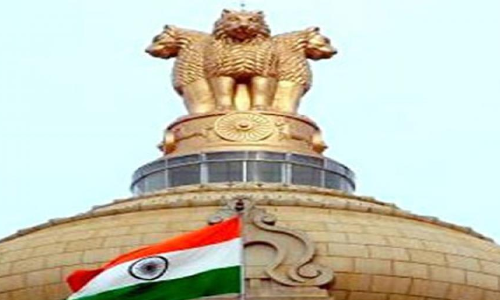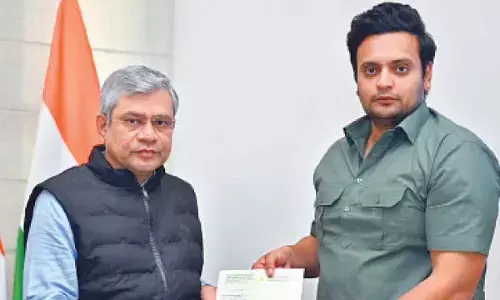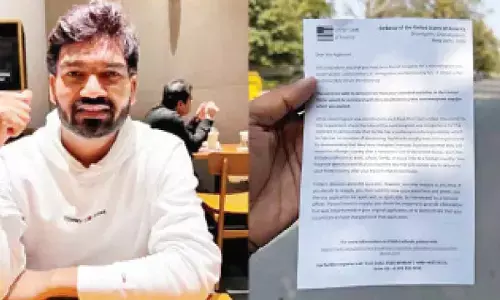Dissolving a State Assembly – key insights – Part I

When and in what circumstances can an Assembly be dissolved, without taking it into confidenceThis is a piece of free advice to the rulers andor for the general public, on the above stated vexed question
When and in what circumstances can an Assembly be dissolved, without taking it into confidence? This is a piece of free advice to the rulers and/or for the general public, on the above stated vexed question.
Before getting to the central issue, it is necessary to have a quick glance at the relevant provisions of the Constitution, through historic time,having a bearing on the issue and the graded development of the concept of ‘gubernatorial discretionary power’.
The powers under the Constitution,to dissolvean elected body, be if the Parliament or the Legislative Assembly, in the Government of India Act 1935, the Draft Constitution before the Constituent Assembly 1948 and the Constitution of India, 1950,upon the aid and advise of the Council of Ministers is are set out in a chart form:-
Under the Government of India Act,1935
Under the Draft Constitution, 1948 The Constitution of India 1950
Sec. 9:
Council of ministers.-
(1) There shall be a council of ministers, not exceeding ten in number, to aid and advise the Governor-General in the exercise of the functions, [except in so far as he is by or under this Act required to exercise his functions or any of them in his discretion: Provided that nothing in this sub-section shall be construed as preventing the Governor-General from exercising his individual judgment in any case where by or under this Act he is required so to do.
(2) The Governor-General in his discretion may preside at meetings of the council of ministers.
(3) If any question arises whether any matter is or is not a matter as respects which the Governor-General is by or under this Act required to act in his discretion or to exercise his individual judgment, the decision of the Governor-General in his discretion shall be final, and the validity of anything done by the Governor General shall not be called in question on the ground that he ought or ought not to have acted in his discretion, or ought or ought not to have exercised his individual judgment].
Art. 61:
Council of Ministers to aid and advise President.
(1) There shall be a Council of Ministers with the Prime Minister at the head to aid and advise the President in the exercise of his functions.
(2) The question whether any, and if so what, advice was tendered by Ministers to the President shall not be inquired into in any court.
Art. 74:
Council of Ministers to aid and advise President.
(1) There shall be a Council of Ministers with the Prime Minister at the head to aid and advise the President who shall, in the exercise of his functions, act in accordance with such advice:
Provided that the President may require the Council of Ministers to reconsider such advice, either generally or otherwise, and the President shall act in accordance with the advice tendered after such reconsideration.
(2) The question whether any, and if so what, advice was tendered by Ministers to the President shall not be inquired into in any court.
Sec. 19:
Sessions of the Legislature, Prorogation and dissolution-
(1) The [Chambers of the Federal] Legislature shall be summoned to meet once at least in every year, and twelve months shall not intervene between their last sitting in one session and the date appointed for their first sitting in the next session.
(2) Subject to the provisions of this section, the Governor-General may in his discretion from time to time--
(a) summon the [Chambers or cither Chamber] to meet at such time and place as he thinks fit;
(b) prorogue the Chambers;
(c) dissolve the Federal Assembly.
(3) The Chambers shall be summoned to meet for their first session on a day not later than such day as may be specified in that behalf in His Majesty's Proclamation establishing the Federation.
Art. 69:
Sessions of Parliament, prorogation and dissolution-
(1) The Houses of Parliament shall be summoned to meet twice at least in every year, and six months shall not intervene between their last sitting in one session and the date appointed for their first sitting in the next session.
(2) Subject to the provisions of this article, the President may from time to time-
(a) summon the Houses or either House of Parliament to meet at such time and place as he thinks fit;
(b) prorogue the Houses;
(c) dissolve the House of the People.
Art. 85:
Sessions of Parliament, prorogation and dissolution-
(1) The President shall form time to time summon each House of Parliament to meet at such time and place as he thinks fit, but six months shall not intervene between its last sitting in one session and the date appointed for its first sitting in the next session.
(2) The President may from time to time--
(a) prorogue the Houses or either House;
(b) dissolve the House of the People.
Sec. 50:
Council of Ministers-
(1) There shall be a council of ministers to aid and advise the Governor in the exercise of his functions, except in so far as he is by or under this Act required to exercise his functions or any of them in his discretion:
Provided that nothing in this sub-section shall be construed as preventing the Governor from exercising his individual judgment in any case where by or under this Act he is required so to do.
(2) The Governor in his discretion may preside at meetings of the council of ministers.
(3) If any question arises whether any matter is or is not a matter as respects which the Governor is by or under this Act required to act in his discretion or to exercise his individual judgment, the decision of the Governor in his discretion shall be final, and the validity of anything done by the Governor shall not be called in question on the ground that he ought or ought not to have acted in his discretion, or ought or out not to have exercised his individual judgment.
Art. 143:
Council of Ministers to aid and advise Governor-
(1) There shall be a Council of Ministers with the Chief Minister at the head to aid and advise the Governor in the exercise of his functions, except in so far as he is by or under this Constitution required to exercise his functions or any of them in his discretion.
(2) If any question arises whether any matter is or is not a matter as respects which the Governor is by or under this Constitution required to act in his discretion, the decision of the Governor in his discretion shall be final, and the validity of anything done by the Governor shall not be called in question on the ground that he ought or ought not to have acted in his discretion.
(3) The question whether any, and if so what, advice was tendered by Ministers to the Governor shall not be inquired into in any court.
Art. 163:
Council of Ministers to aid and advise Governor-
(1) There shall be a Council of Ministers with the Chief Minister at the head to aid and advise the Governor in the exercise of his functions, except in so far as he is by or under this Constitution required to exercise his functions or any of them in his discretion.
(2) If any question arises whether any matter is or is not a matter as respects which the Governor is by or under this Constitution required to act in his discretion, the decision of the Governor in his discretion shall be final, and the validity of anything done by the Governor shall not be called in question on the ground that he ought or ought not to have acted in his discretion.
(3) The question whether any, and if so what, advice was tendered by Ministers to the Governor shall not be inquired into in any court.
(P Niroop Reddy - The author is an Advocate, Supreme Court of India,Former Addl. Advocate-General, State of Meghalaya)




